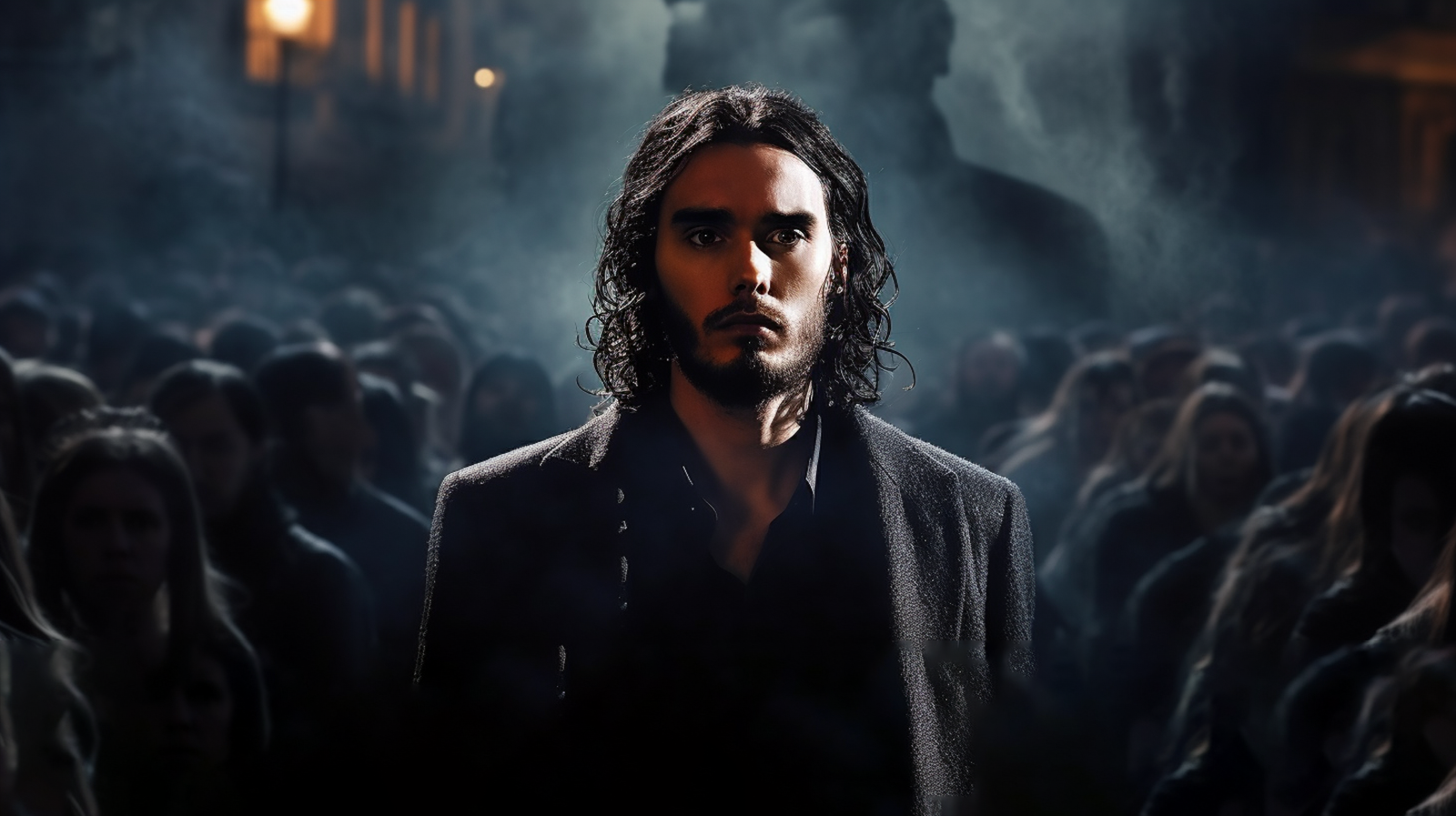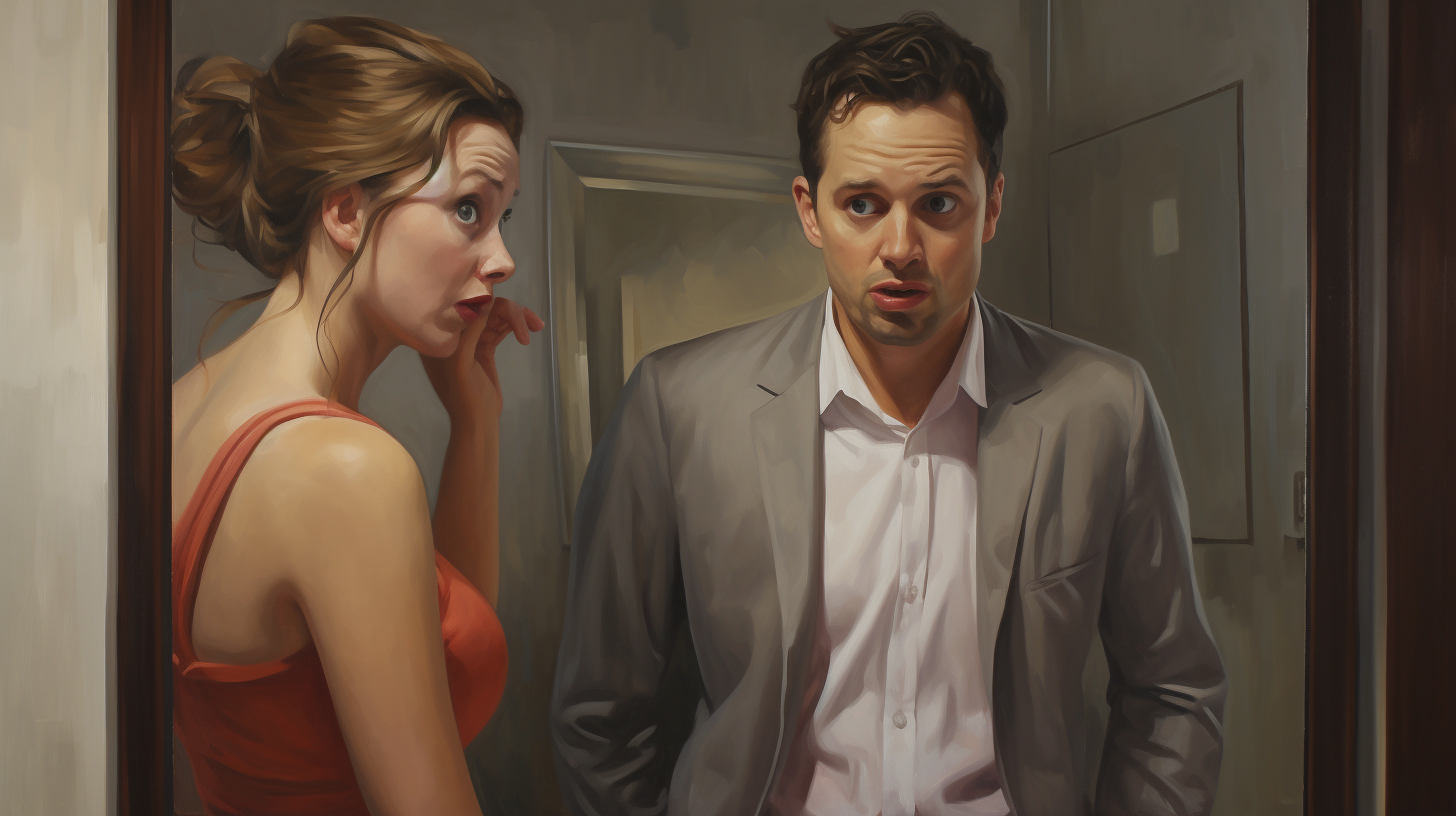Understanding the culture of silence around Russell Brand 🤔

I’m taking a bit of a left-turn this week, as there’s an issue that has become national news that touches upon the subjects I talk about here at The Brink.
Last weekend, Russell Brand, the comedian and more recently, conspiracy theory peddling YouTuber was named in a four-year long investigation into rape, and predatory behaviour of women as young as 16.

The investigation was far reaching, and trawled through vast amounts of data. While the focus has been on Brand, as has the fallout, there’s been a part of the story that I kept coming back to: how did all these people who worked with and around Brand not speak up and say anything?
Why was there such a culture of silence among professionals, young and old, in the face of someone being, well, let’s face it, a colossal turd to women? I took to the books to find out.
The troublemaker 👿

A culture of silence is, depressingly, a global phenomenon. In a large scale study of attitudes at work spanning 33 countries, stories not that different from Russell Brand’s are common place.
Whether it’s car fraud, abuse in the Church, sport, America’s invasion of Iraq, or good old fashioned sexual harassment in the work place, people fail to speak up often.
It’s worth distinguishing the difference between people who have been forced into silence, versus those who did not have such draconian measures put upon them. Harvey Weinstein, another turd of a man, famously gagged his victims with non-disclosure agreements that meant if any of them spoke out, they would be met with a lawsuit.
What we’re focusing on today is people who saw something and said nothing. Or worse, people who did say something to someone, but that someone choose not to do anything about it.
Psychologists have been looking at this phenomenon for quite some time. A coherent theory emerged in the 1970s from German political scientist Elisabeth Noelle-Neumann - oh the irony is not lost on me that the creator of a theory about people’s views being suppressed was created by a woman given what we’re talking about today.
Noelle-Neumann called it a “Spiral of Silence”, and it was based on the idea that our opinions are constantly assessed and measured against our perception of others. In other words, if we don’t think anyone else thinks something is inappropriate, we modify our beliefs to fit in.
Why do we modify our beliefs? Because of our inherent need to ‘fit’ in the groups we are in. Even those we work with. The fear of social isolation, or worse, losing your job, can often be a powerful enough motive to say nothing. But more recent studies have found other dimensions to our desire to keep schtum.
Back to that international study once again, other facets of why silence emerges come when people believe speaking up won’t make a difference.
Since the publication of Brand’s allegations, there have been examples of people attempting to say something, but found it was left wanting. In one harrowing example, when female producers on a show protested a decision to ask Brand to host a show they we were working on they were told women wouldn’t work on the production.

Then there’s the desire to protect superiors or colleagues or avoid embarrassing them. This is an interesting one I hadn’t heard of before. This silence motivation is different because saying nothing in this instance, is about caring for people we deemed important. Watching a boss do something stupid or inappropriate is met with a desire not to embarrass and humiliate them, even if that comes at the expense of the person they did it to.
Last, but certainly not least, according to the study, silence was used to gain leverage over the wrong-doer. The study found that in some cases, people saw it as an opportunity to improve their own fortunes at the expense of those that had the misfortune of being caught up in the shitty thing.
I’d like to add a final dimension to this. Mr. Brand has consistently done terrible things. Here are a few examples:
- On his radio show in 2007 - pre the scandal that got him fired - he instructed a 15-year-old girl to have a sex themed birthday party.
- On Jimmy Fallon he forcibly pulled another guest to sit on his lap.
- He made sexual advances to a colleague’s daughters live on air.
- He prank called a rape helpline live on stage.
In each of these, there is a common theme of incredulity among those there. A collective, “how is he allowed to do this?” as it were.
More questions emerge for the BBC as @C4Dispatches uncovers more inappropriate comments made on Russell Brand’s Radio 2 show pre Sachsgate.
— Channel 4 Dispatches (@C4Dispatches) September 19, 2023
In this clip from 2007, Brand suggests to a 15-year-old listener that she should have a sex themed 16th birthday party. #C4Dispatches pic.twitter.com/fQdPtoOpge
Having been in positions where I've thought the same, I think there’s a belief that someone more senior or with more authority will step in and stop them. A feeling of, “if I think this is bad, surely one of the grown ups will step in?”
The problem with that is, on top of the reasons above it creates this idea that there should be someone in charge. I’ve worked in media for 20 years and I can tell you, the higher ups always had a patchy record at ‘doing the right thing’. Just my two cents here.
So how the hell do we stop this? 🙅
Back to the books once again. These power structures are, in a word, powerful. Meaning it can be incredibly difficult for members of a company or a team to change the culture singlehandedly.
There’s a lot of articles speaking to this idea that culture can be changed through speaking up. That might be true. But as was shown in the Dispatches documentary about Brand, some people did try to say something and nothing changed.
Awareness, or whistleblowing has historically come from someone on the outside looking in. Purdue Pharma - the unwitting stars of Painkiller on Netflix - was blown up because outsiders started poking their nose around how the business was run, and managed to find people willing to talk. This is typically how things change. Some examples:
- Mark Whitacre, the corporate vice president of Archer Daniel Midland noticed his company was price fixing. He tried to raise the issue internally, but was dismissed. So he went to the FBI - and worked for three years undercover to expose his employers. He would go on to become the subject of the 2009 film The Informant! Starring Matt Damon.
- Vera English was a lab technician at a nuclear facility operated by General Electric in 1984. She noticed the frequency of radioactive spillages and contacted both her supervisor and the Nuclear Regulatory Commission about her concerns, but nothing was done and English was fired shortly after. It was only after she went and sought external help, she took them to court and won.
- Edward Snowden was a computer intelligence consultant that had noticed the NSA were doing things they shouldn’t. He tried to draw attention to it and no one listened. So he went to The Guardian.
- Daniel Ellsberg leaked the Pentagon Papers to the New York Times in 1971 after noticing the Johnson administration had lied under oath.
- W. Mark Felt, or Deep Throat himself, the secret informant to Bob Woodward and Carl Bernstein, the Washington Post reporters who broke the Watergate scandal in 1972 was Associate Director of the FBI, the second-in-command position at the Bureau, when he leaked information about President Nixon’s involvement in Watergate.
- And finally, the Russell Brand story came from outsiders - not the companies he worked with or those executives that hired - and the courageous women who decided to speak out.
If you’re currently witnessing something where you work and you think someone should know about it, the Freedom of the Press Foundation has a detailed guideon how to do it, and a list of publications you can report it to.
Things we learned this week 🤓
- 🔥 The log fire you’re about to put on cos it’s winter? Yeah, you might not want to do that.
- 🚶♂️ Men who post a lot on social media are considered ‘less manly’.
- 🧀 Eating cheese is good for our brain? huzzah!
- 🏋️ Sexually competitive workplaces increase women’s tolerance of risky weight loss procedures.
What you should do this week 📅
Become a member! This is the free version of The Brink, but there is a secret, extra special version that has things like:
- 🎤 Podcasts
- 📹 Video
- 🙋 AMAs - Ask me Anything and I’ll make a video an article for you to cut out and keep.
- 💆 Proper, researched ways of alleviating stress and anxiety.
It’s only $5 a month, or $50 for the year, which is 17% less than doing it monthly I’ve been told. What are you waiting for? Head here and click the "subscribe button".
I love you all. 💋

